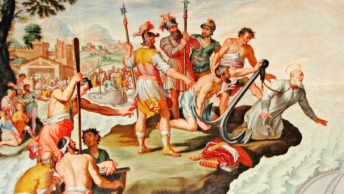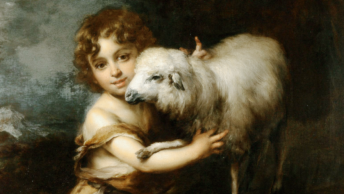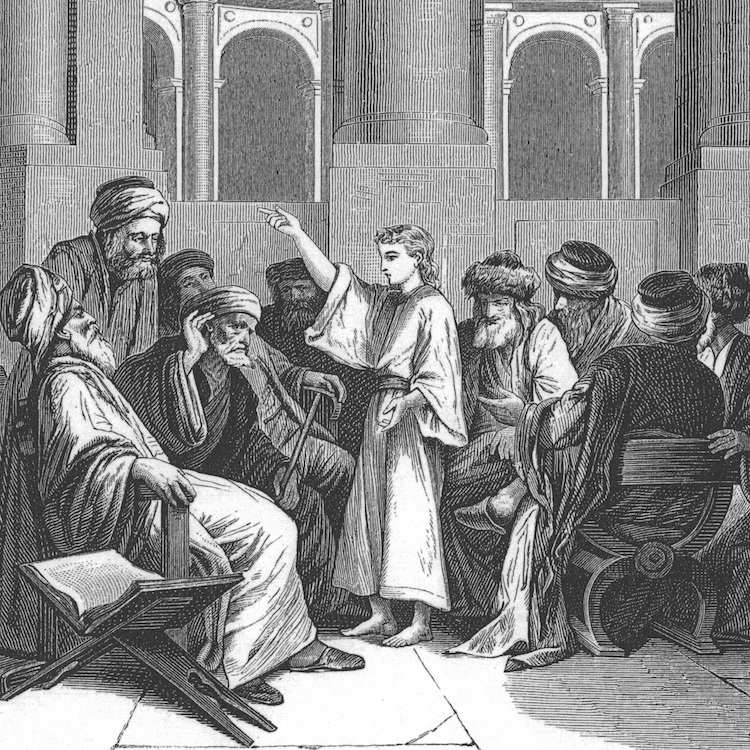I’m very proud to be an American, but there are times when I’m ashamed of our country. I’m proud that we have what in some ways is probably the freest society on earth, but I’m ashamed that so many people misuse this freedom through such things as crime, materialism, and immorality. I’m proud that we have a caring, compassionate society, with programs to help the poor and the needy, but I’m ashamed that many times these programs have created welfare dependency, robbing people of their dignity and a sense of personal responsibility. I’m proud that we have the freedom to elect our national and local leaders, but I’m ashamed of the character and actions of many of the men and women we’ve chosen—especially politicians who call themselves Catholic while being pro-abortion. I’m proud that our universities and colleges comprise the finest system of higher education in the world, but I’m ashamed that much of our public education system is seemingly a failure, and that some of our high school graduates—especially in large cities—can barely read. I’m proud that America is the most powerful and influential nation in the world, but I’m ashamed that many times this influence promotes corporate greed and immoral lifestyles. I’m proud that the United States has made more progress in eliminating racism than probably any other society, but I’m ashamed that hatred, bigotry, and racial tensions are still a part of our national life. I’m proud that our country is the greatest and most prosperous in history, but I’m ashamed that many people are left out of the American dream and have little opportunity to get ahead.
There is tremendous goodness in our country, but also much that is wrong. The same thing is true of our Church; it is both the spotless bride of Christ, and a society of sinners—some of whom have sinned grievously. This same dynamic is true, to a lesser degree, of our parish: it is a wonderful community of faith, and yet—in a spiritual sense—much less than it should be. This same truth applies to me personally, and also to you; we are at the same time noble and loving, and sinful and weak. All of us are both good and bad, filled with holiness and iniquity; there are weeds mixed in among our wheat. We need to be aware of each element, both in ourselves and in the world around us, for only in this way can we as sinners truly work for the coming of God’s Kingdom.
Our Lord’s parable of the weeds among the wheat helps explain why evil exists in a world created by an all-loving and all-powerful God; it gives us a reason to believe in God’s final victory, even when evil seems to be gaining the upper hand. Jesus speaks of Satan as one of the sources of the weeds among us—and indeed, the devil is very active in the world, trying to lead astray as many people as possible. Just as the enemy sowed his worthless seeds at night, so Satan tries to work behind the scenes, attacking humanity in secret and attempting to deceive the unwary. Society itself, with its false values, is another source of the weeds among us, as is our own personal sinfulness. God intended the world to be good, but human free will often resists this plan. As a result, human beings—made in the glorious image and likeness of God—often give in to greed, materialism, pride, lust, anger and violence, spiritual complacency and laziness, and indifference to the needs and sufferings of others. The Book of Wisdom (12:13, 16-19) tells us that God will forgive us if we’re sorry for our sins, and St. Paul (Romans 8:26-27) assures us that the Holy Spirit Himself intercedes for us—but it’s our responsibility to ask for God’s help and to take Christ’s teachings seriously.
According to Jesus, good and evil are mixed in together in this world. What lessons can we learn from His parable in the Gospel of Matthew (13:24-43)? First of all, we’re told that life can be spiritually dangerous, and that there actually are people who are in fact our spiritual enemies. You may remember when you were growing up that your parents wanted to meet your friends, and warned you against associating with the wrong kind of people. There was good reason for this, and it’s even more important today. Parents must guard their children from bad friends and from bad ideas shown on TV and in the movies; adults must also guard themselves against possible bad influences. Weeds can choke off the wheat if given the chance. We don’t need to be paranoid, but we do have to be on our guard.
Secondly, we should do what we can to increase the yield of wheat, and to decrease the number of weeds, both within ourselves and in the world around us. We must try to overcome our bad habits and sins, and to grow spiritually, while at the same time influencing others through our good example. On a farm, of course, wheat remains wheat, and weeds are forever weeds, but in life people can and do sometimes change. Good people can fall away from their faith; sinners can repent and turn back to God. Not only must we guard against being led into sin; we must actively inspire and lead others to holiness—especially within our own families. We can’t change the entire world, of course, but positively influencing just one other person’s life is of infinite value.
Thirdly, the parable assures us that a day of reckoning will come; goodness will finally be rewarded, and wickedness punished. It’s sometimes easy to forget this. Society used to encourage and support the values of honesty, personal responsibility, and morality; now it ignores or mocks them, and to live as Christians sometimes seems to put us at a serious disadvantage. Many of those who reject God and His law seem to be prospering, but we have no reason to envy them, and we must certainly not imitate their example. Divine justice will prevail, and our efforts and sacrifices will be rewarded; Jesus tells us that by following Him, we will one day shine like the sun in our Father’s Kingdom.
We are given a mission in life, and it’s not an easy one: we have to be committed to Christ, and always aware of the spiritual dangers around us, all the while guarding against the false priorities the world and the devil try to sow in our lives. Jesus ends His parable with the words, “Whoever has ears ought to hear,” and He says this with good reason. His message is an extremely serious and important one, and we must be awake, alert, and responsive. God offers us eternal life; accepting it must be our choice.








